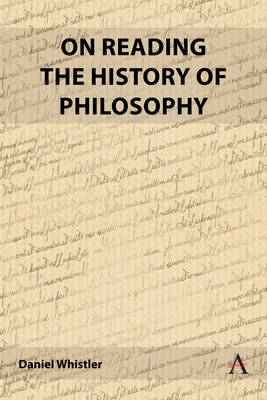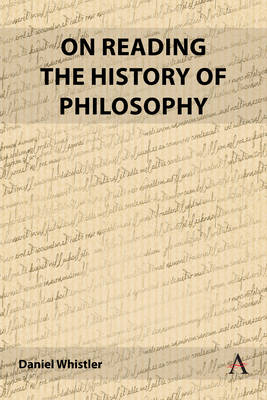
- Retrait gratuit dans votre magasin Club
- 7.000.000 titres dans notre catalogue
- Payer en toute sécurité
- Toujours un magasin près de chez vous
- Retrait gratuit dans votre magasin Club
- 7.000.0000 titres dans notre catalogue
- Payer en toute sécurité
- Toujours un magasin près de chez vous
Description
The history of philosophy is composed almost exclusively from texts. These texts look very different from each other, were produced for very different reasons and had very different functions, but, nevertheless, all of them demand an act of reading to unlock their philosophical content. And yet, the role of reading in both accessing shaping philosophical pasts has been neglected. Many philosophers since Descartes have acted as if they could bypass words when communicating ideas, and, among historians of philosophy, this tendency has been both prevalent and odd--since they spend most of their time reading. The book seeks to redress this neglect and provide an account of--as well as a defence of--the history of philosophy as a reading practice. It brings back into focus the activity that historians of philosophy actually spend most of their time doing. However, it does not do so by way of familiar categories such as hermeneutics, rational reconstruction or analysis; instead, the book attempts to defamiliarize philosophical reading practices by asking an alternative set of questions about them: How do philosophical ideas relate to the words on the page? What is the relation between reading and thinking in philosophy? How can the reader select and arrange philosophical texts in order to create 'a history'? Who are historians of philosophy and how do certain reading practices generate and transform them? The aim of the book, therefore, is to attend to the very thing historians of philosophy spend most of their time doing--reading.
Spécifications
Parties prenantes
- Auteur(s) :
- Editeur:
Contenu
- Nombre de pages :
- 250
- Langue:
- Anglais
- Collection :
Caractéristiques
- EAN:
- 9781839988837
- Date de parution :
- 31-12-25
- Format:
- Livre relié
- Format numérique:
- Genaaid
- Dimensions :
- 152 mm x 229 mm
- Poids :
- 453 g

Les avis
Nous publions uniquement les avis qui respectent les conditions requises. Consultez nos conditions pour les avis.






